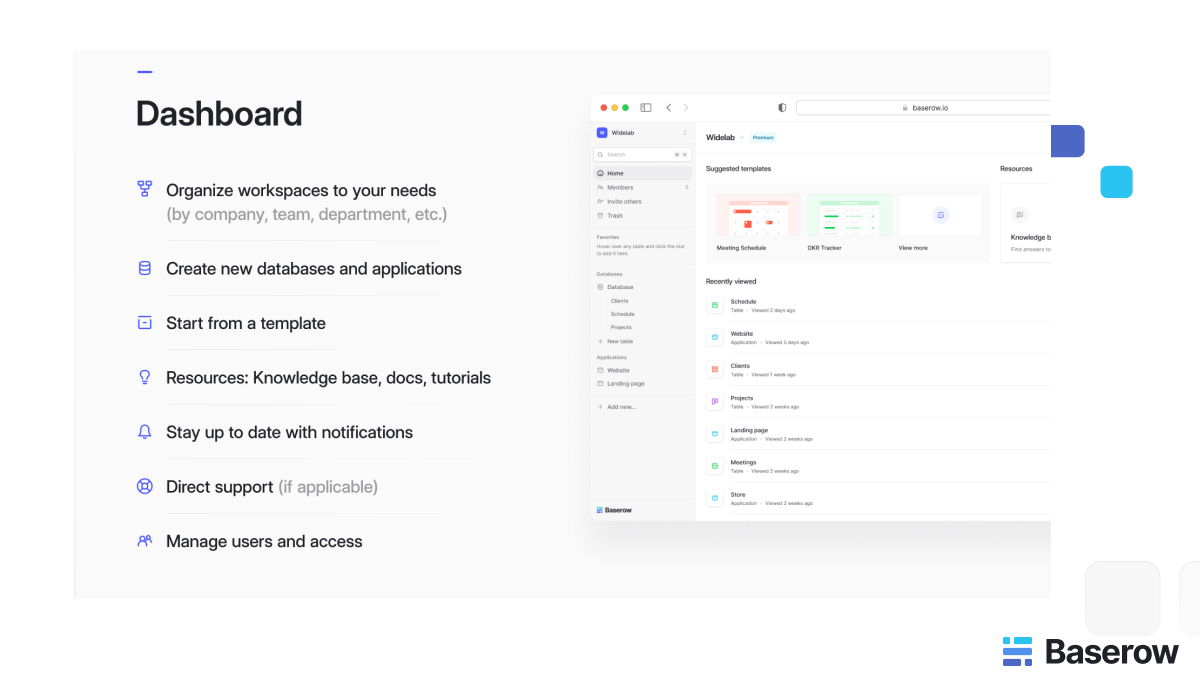
In a world where data powers every business decision, maintaining privacy, flexibility, and control has become more important than ever. That’s why an increasing number of companies are moving away from cloud-only tools and embracing self-hosted databases — systems they can install, manage, and control entirely on their own infrastructure.
But what exactly does self-hosted mean, and why are so many modern teams choosing this model?
What Does Self-Hosted Mean and Why It Matters
A self-hosted database is a system you install and operate on your own server, either on-premises or in a private cloud. Unlike SaaS (Software as a Service) platforms that rely on third-party infrastructure, self-hosted setups allow you to have local control over your data, configurations, and security protocols.
This autonomy is crucial for organizations that handle sensitive information or operate in industries with strict compliance regulations. With full access to the source code, businesses can audit, customize, and optimize their databases for unique workflows.
For example, a team building home automation or home assistant integrations may prefer to store and process data locally rather than sending it to the cloud. This ensures faster response times and greater privacy — something cloud-based systems can’t always guarantee.
The rise of open source software has made self-hosting more accessible than ever. Companies no longer need extensive IT teams to deploy powerful database systems. Instead, they can use flexible, intuitive platforms like Baserow, which simplify setup and management while retaining full data control.
Top Self-Hosted Databases for Companies
Baserow – The Modern, No-Code Open Source Database
Baserow is redefining how companies approach data management. As a no-code, open source software, it empowers teams to build and scale internal tools, manage projects, and centralize operations — all while maintaining complete ownership of their data.
Organizations can host Baserow on their own servers or private clouds, giving them complete control over uptime, access, and performance. Its accessible source code lets teams customize fields, workflows, and automation rules to match their internal processes.
Baserow integrates seamlessly with tools like Home Assistant or IoT ecosystems for home automation, making it a great choice for tech-driven businesses looking to unify local and digital operations.

What truly sets Baserow apart is its community-driven development. The Baserow Community actively contributes templates, integrations, and plugins that continuously enhance the platform. This collaborative environment ensures rapid evolution and transparent improvements.
To see how easily teams can deploy and self-host their databases, explore the Baserow Product Overview.
Example Use Case: A logistics company uses Baserow as its internal database to manage delivery routes and warehouse stock. Hosting it on its private server ensures fast access for staff and full compliance with internal data protection policies.
PostgreSQL – Reliable and Scalable
PostgreSQL is a battle-tested open-source relational database known for data accuracy and scalability. It’s widely used in industries that demand consistent performance and complex querying capabilities.
Companies appreciate PostgreSQL for its community support and rich extensions ecosystem. It’s also a top choice for developers looking to integrate structured data systems with no-code tools like Baserow. Learn more about databases and structure in Baserow’s database blog.
MySQL / MariaDB – Proven and High-Performance
MySQL and MariaDB remain two of the most popular self-hosted database options for web and enterprise applications. Both are efficient, stable, and highly customizable.
They give developers source code access for performance tuning and flexibility in configuration — essential for applications that rely on real-time analytics or high-speed transactions.
MongoDB (Community Edition) – Flexible and Document-Based
MongoDB’s community edition is a favorite for companies managing unstructured or semi-structured data. Its document-based approach offers flexibility, and self-hosting ensures sensitive data stays within the organization’s ecosystem.
It’s especially useful for startups developing AI models or automation systems that depend on local computation and self-hosted AI environments.
Benefits of Choosing a Self-Hosted Database
- Data ownership and privacy: No external access or dependency on third-party servers.
- Customization freedom: Access to source code for unlimited flexibility.
- Security and compliance: Ideal for regulated industries like healthcare or finance.
- Cost efficiency: Reduced recurring SaaS expenses over time.
- Offline reliability: Maintain uptime even without external connectivity.
Platforms like Baserow make self-hosting easier for all types of teams — from developers to project managers — by offering an intuitive interface and automation-ready design.
.png)
Frequently Asked Questions
- What does self-hosted mean?
It refers to software you install and maintain on your own infrastructure instead of relying on cloud providers.
- Can you self-host for free?
Yes. Many open-source software options like Baserow or PostgreSQL offer free versions that you can deploy independently.
- What is an example of self-hosting?
Hosting your internal CRM or project management database using a local installation of Baserow is a perfect example.
- What is the use of self-hosted AI?
It allows organizations to train and run AI models locally, maintaining data privacy and reducing latency.
- What is the difference between self-hosted and SaaS?
SaaS tools are managed by a third party, while self-hosted systems are owned, controlled, and maintained by the organization itself.
Final Thoughts
Self-hosted databases give companies freedom — to protect their data, to customize their systems, and to innovate without limits. With platforms like Baserow, you can combine the simplicity of no-code tools with the strength of open-source software and complete control over your infrastructure.
Start your journey toward full data autonomy today.
Sign up for free on Baserow and experience the power of self-hosted flexibility.

Baserow 2.1 is a maintenance-focused release that improves performance, security, and reliability. It introduces Expert formula mode, Nuxt 3 and Django upgrades, bug fixes, PostgreSQL 14+ support for self-hosters, and a new Ukrainian translation.

Discover how Airtable and Baserow compare in features, flexibility, speed, and scalability. Compare pricing plans and hidden costs to make an informed decision!

Explore the best open-source software alternatives to proprietary products. Discover OSS tools, licenses, and use cases with our updated directory.
